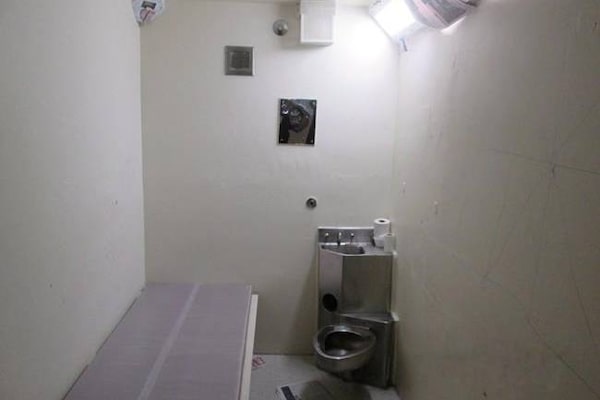
A solitary confinement cell is shown in a handout photo from the Office of the Correctional Investigator.
The Canadian Civil Liberties Association is appealing a judge's ruling in a three-year-old case over the use of solitary confinement in the federal prison system, arguing that it doesn't order Parliament to enact adequate safeguards for inmates facing the harmful incarceration method.
Ontario Superior Court Associate Chief Justice Frank Marrocco ruled in December that the laws governing solitary confinement lack independent oversight – a key argument put forth by the CCLA – and ordered Ottawa to fix the legislation within a year.
But it was something of a Pyrrhic victory for the CCLA, as Justice Marrocco rejected several other threads of the group's case despite acknowledging clear harms caused by Correctional Service Canada's use of solitary confinement – known internally as administrative segregation – the practice of confining inmates to elevator-sized cells for up to 23 hours a day.
Based on extensive expert testimony in the case, he wrote that "placing an inmate in administrative segregation imposes a psychological stress, quite capable of producing serious permanent observable negative mental health effects."
He further agreed that "the harmful effects of sensory deprivation caused by solitary confinement could occur as early as 48 hours after segregation."
These harms could be avoided, however, as long as the current legislation was properly followed, he wrote. Any damage to inmates was a result of maladministration, not weak laws.
This is where the CCLA is targeting its appeal. Lawyers for the group will argue that sections of the Corrections and Conditional Release Act violate Section 12 of the Charter of Rights and Freedoms guaranteeing protection against cruel and unusual punishment.
"The CCLA was pleased with Associate Chief Justice Marrocco's decision to strike down the legislative provisions that authorize administrative segregation in federal penitentiaries," said Michael Rosenberg, one of the lead lawyers for the CCLA. "Given the court's recognition of the danger posed by this practice, however, we need to ensure that Parliament is directed to enact broader safeguards. That is what this appeal is about."
The association launched the constitutional application in January, 2015, just a month after The Globe and Mail began a long-term examination of solitary-confinement practices in the country, starting with an investigation into the 2010 death of Eddie Snowshoe in prison after 162 days in solitary confinement.
A B.C. judge's decision in a similar but unrelated challenge of Correctional Service Canada's solitary-confinement regime is scheduled for release later on Wednesday.
Lawyers for the CCLA argued for a 15-day limit on segregation placements, a prohibition on the isolation of mentally ill inmates, a rule barring prisoners aged 18 to 21 from solitary cells, a ban on segregation being used as a form of protective custody and an independent oversight system for all segregation decisions.
Justice Marrocco agreed to the last request only.
Under the current review system, prison wardens act as both the investigator and adjudicator.
They are responsible for both the initial decision to place an inmate in solitary and the internal tribunal assembled five days later to study and adjudicate that decision. Justice Marrocco wrote that such an arbitrary and potentially biased form of oversight is unacceptable considering the severe deprivation of liberty and security – two protections guaranteed under Section 7 of the Charter – that takes place when an inmate is sent to solitary.
"I am satisfied that the statutory review of the decision to segregate is procedurally unfair," he wrote, "and contrary to the principles of fundamental justice because the procedure chosen provides that the Institutional Head is the final decision maker for admission, maintenance and release from administrative segregation and is the final institutional decision-maker of required reviews and hearings which occur immediately after an inmate is segregated."
 Patrick White
Patrick White